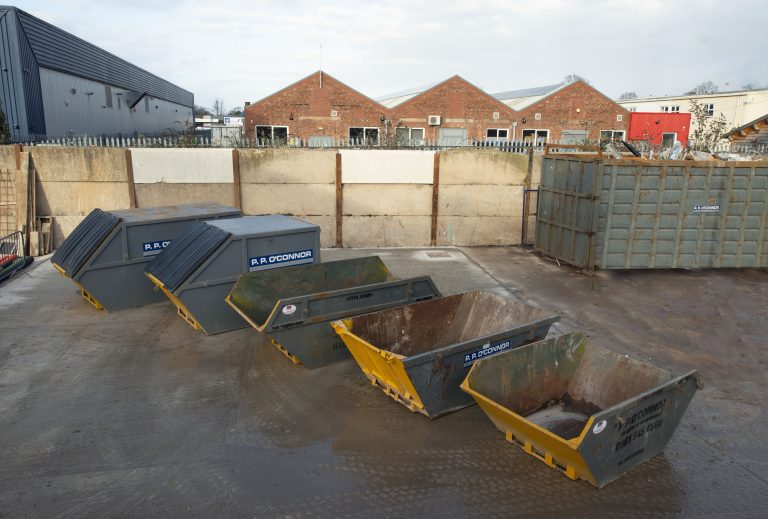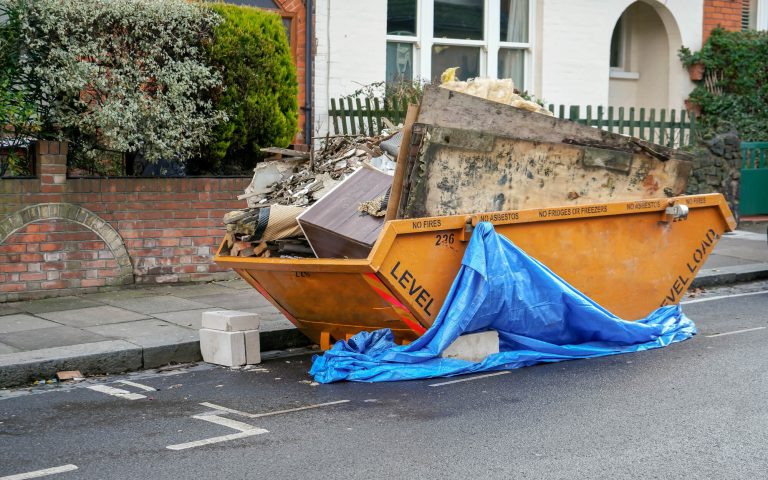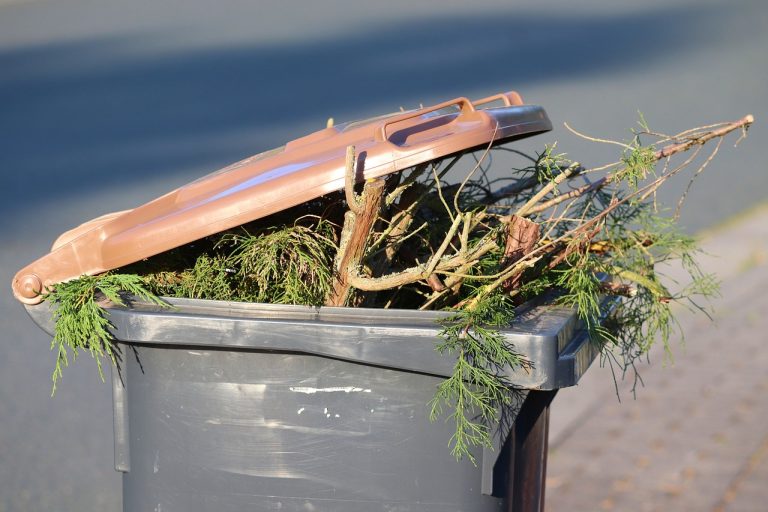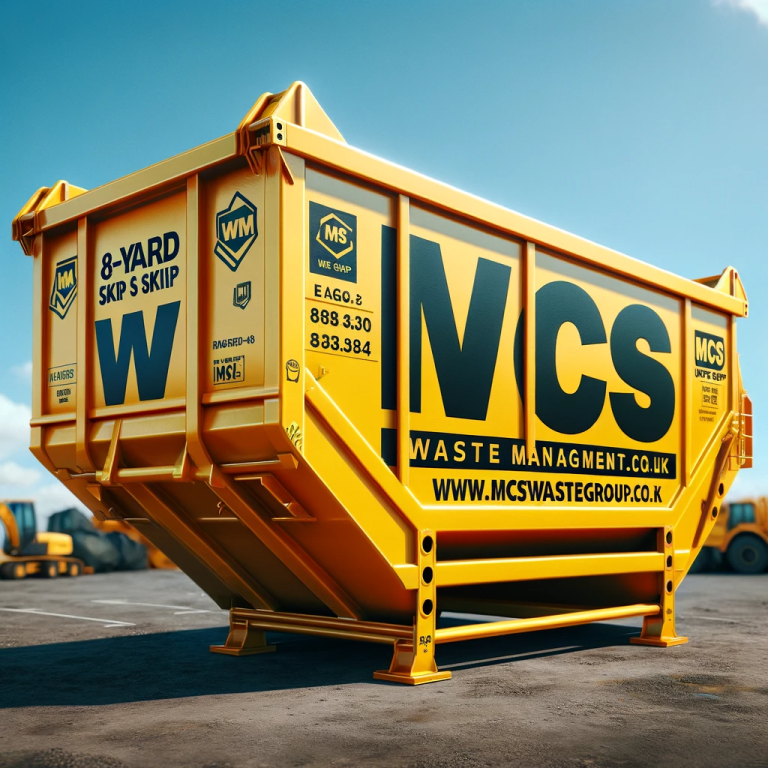Gardening, a beloved hobby for many homeowners, not only enhances the beauty of a home but also contributes to environmental health. However, one crucial aspect of gardening is often overlooked: garden waste management. Piles of grass clippings, branches, leaves, and other organic debris can quickly accumulate, turning your beautiful garden into a cluttered space. This is where skip hire comes into play as an effective solution for garden waste disposal.
Why consider skip hire for garden waste? First, it simplifies the process of waste collection and disposal. Imagine having to bag up all your garden waste and make several trips to the local recycling center. It’s time-consuming and physically demanding. Skips eliminate this hassle by providing a single, convenient place to dispose of all your garden waste at once.
Moreover, hiring a skip is an environmentally responsible choice. When you choose a reputable skip hire service, you can be assured that most of your garden waste will be recycled or composted, reducing the environmental impact.
In this guide, we’ll delve into the specifics of choosing the right skip for your garden waste, including understanding different skip sizes, preparing for a skip’s arrival, loading it correctly, and considerations regarding cost and hiring. Whether you’re undertaking a small garden clean-up or a major landscaping project, this guide will provide all the information you need to manage your garden waste efficiently and responsibly.
Understanding Skip Hire for Garden Waste
What is a Skip? A skip, in its simplest form, is a large container designed for holding and transporting waste. They come in various sizes and are an excellent solution for accumulating and disposing of large quantities of garden waste. Unlike regular bins, skips are designed to handle a substantial amount of waste, making them ideal for garden clean-ups, especially during peak gardening seasons or landscaping projects.
Benefits of Using a Skip for Garden Waste:
- Convenience and Efficiency: Skips are delivered to your property and collected after use, providing a hassle-free way to dispose of garden waste. This is especially beneficial for large projects, where the volume of waste would be impractical to dispose of through regular waste collection services.
- Environmental Friendliness: Most skip hire companies are committed to responsible waste management. Your garden waste is often taken to a processing facility where it is sorted, with a significant portion being recycled or composted, thus contributing to environmental conservation.
- Health and Safety: Accumulated garden waste can be a health hazard, attracting pests and creating trip hazards. Skips provide a safe way to contain and remove waste, reducing these risks.
- Versatility: Skips are not just for grass and leaves; they can handle a variety of garden waste including soil, branches, and old garden furniture or tools.
Different Types of Skips for Garden Waste:
- Mini Skips (2-3 cubic yards): These are perfect for small garden tasks like a weekend garden clean-up or minor landscaping. They take up little space and can fit easily in most driveways.
- Midi Skips (4-5 cubic yards): Ideal for medium-sized garden projects, these skips can accommodate more substantial amounts of garden waste, including branches and larger debris.
- Builders Skips (6-8 cubic yards): These are suited for major garden renovations, including large-scale landscaping projects. They can hold significant amounts of soil, large branches, and other substantial garden waste.
How to Choose the Right Skip Size
Estimating Garden Waste Volume: The key to choosing the right skip size lies in accurately estimating the volume of waste your garden project will produce. Underestimating can result in needing a second skip, while overestimating means you pay for unused skip space. Consider the scale of your project – are you just pruning and trimming, or are you undertaking a full garden overhaul?
Visualizing Skip Sizes:
- Mini Skips: Imagine about 25-35 black bin bags of waste.
- Midi Skips: Equivalent to roughly 45-55 black bin bags.
- Maxi Skips: Comparable to 65-85 black bin bags of waste.
Tips for Selecting the Right Size:
- Assess Your Garden Waste: Walk around your garden and visualize the waste in terms of volume. Factor in not just the green waste but also any old garden furniture or non-organic waste you plan to dispose of.
- Consider Future Garden Work: If you have ongoing garden projects, it might be wise to hire a slightly larger skip to accommodate future waste.
- Legal Limitations: Remember, it’s illegal to fill a skip beyond its height. Overloaded skips can be unsafe and may not be collected by the skip hire company.
Preparing for a Skip Delivery
Choosing a Suitable Location: The location of the skip is crucial for both practical and safety reasons. You need a spot that is easily accessible for both delivery and collection, and where the skip can sit level. Consider the weight of a full skip; ensure the ground is stable enough to support it without causing damage.
Preparing the Site: Clear any vehicles or obstacles from the chosen skip location. Measure the area to ensure there’s enough space for the skip size you’ve chosen. Additionally, consider access for the delivery truck – is there enough clearance for it to maneuver safely?
Council Regulations: If you don’t have a driveway and need to place the skip on public land (like a street), you’ll likely need a permit from your local council. Obtaining this permit can take a few days, so plan ahead. Some skip hire companies will arrange this for you, but it’s always good to check your local council’s regulations yourself to avoid any surprises.
Best Practices for Loading Garden Waste
Efficiently Loading Your Skip:
- Start with Flat Items: Place flat and heavy items at the bottom. This includes large branches, wooden planks, or old fence panels.
- Break Down Larger Items: To maximize space, cut or break down larger garden waste like branches or big plants. This will allow you to fit more into the skip and avoid empty spaces.
- Distribute Weight Evenly: To prevent the skip from becoming unstable, distribute the weight evenly. This is important for safety when the skip is being transported.
What Can and Can’t Be Placed in a Garden Waste Skip:
- Allowed: Besides organic garden waste (like branches, leaves, and soil), you can usually include other non-hazardous waste such as old garden tools or non-electrical fixtures.
- Not Allowed: Hazardous materials, including but not limited to, paint cans, chemicals, batteries, and electrical appliances should not be placed in a garden waste skip.
Safety Tips for Loading:
- Avoid Overfilling: It’s tempting to try and get the most out of your skip, but overfilling can lead to safety hazards and legal issues.
- Be Mindful of Sharp Objects: If you’re disposing of thorny branches or broken garden tools, place them in a way that they don’t pose a risk to you or the skip collection team.
- Wear Protective Clothing: Always wear gloves and sturdy footwear when loading your skip to protect yourself from cuts and other injuries.
Cost Considerations and Hiring Tips
Average Costs and Factors Affecting the Price: Skip hire prices depend on the size of the skip, your location, and the duration of hire. While a mini skip might cost around £60-£150, larger skips for extensive garden projects can cost upwards of £200-£400. Additional charges may apply for permits if the skip needs to be placed on public land.








